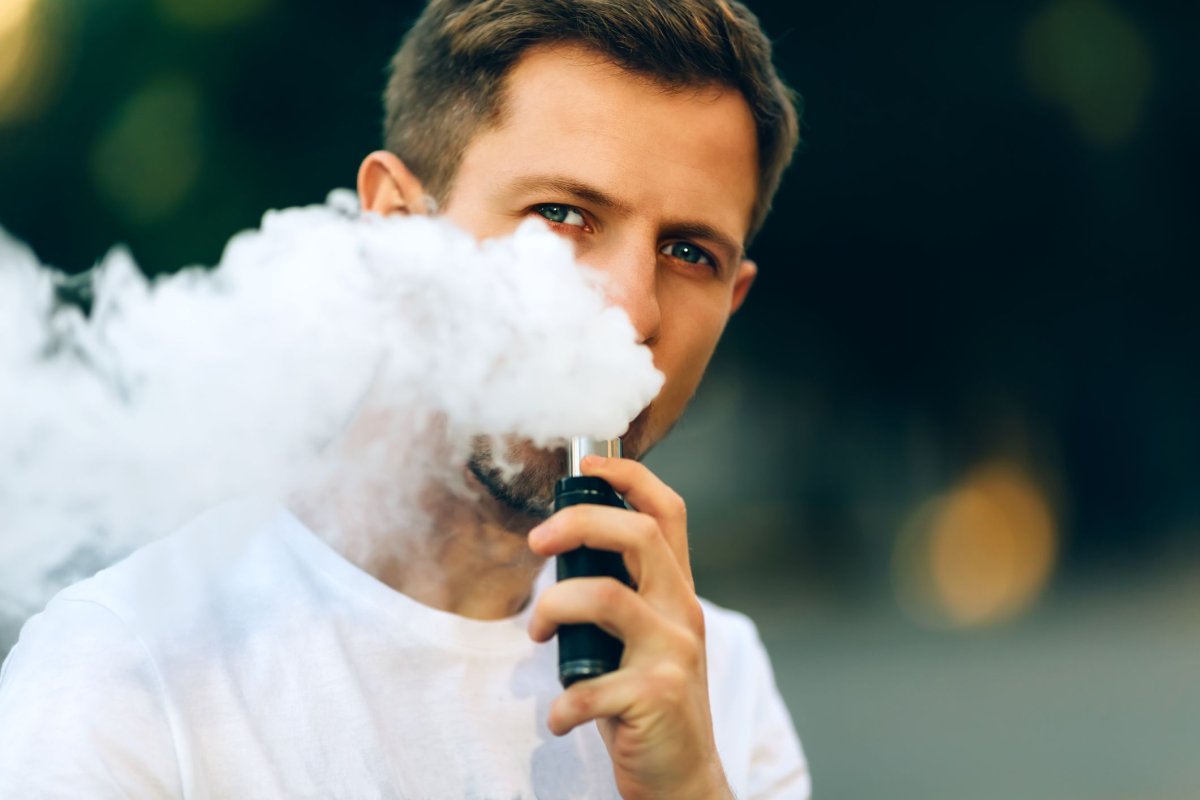Vaping cannabis gets users higher than smoking the psychoactive drug, according to a small study.
The research, carried out at Johns Hopkins University School of Medicine, involved 17 adults who rarely used marijuana. When participants inhaled vaporized cannabis at 25 milligram strength, they experienced "stronger effects" and had higher concentrations of tetrahydrocannabinol (THC, the psychoactive ingredient in the drug) in their blood when compared with those who smoked the same dose.
The study comes as attitudes and laws relating to cannabis use have become more relaxed, with medicinal cannabis now legal in 30 states and Washington, D.C., and recreational use in nine. As a new marketplace has emerged, the popularity of vaporizers has grown, the authors of the study, which was published in the journal JAMA Network Open, wrote.
To conduct their study, the researchers provided nine men and eight women, whose average age was 27, with three strengths of cannabis. The participants smoked and vaped cannabis at strengths of 0 milligrams, 10 millograms and 25 milligrams in six separate eight-hour sessions at least one week apart. Participants were qualified to take part if they were deemed healthy and had not used cannabis in the month before the start of the study.

Read more: Sniffer Dogs Become Redundant and Retire Early as More States Legalize Cannabis
The researchers tested the volunteers' cognitive and psychomotor skills, and measured their vital signs and the concentration of THC present in their blood. Participants completed surveys to measure their subjective experiences in using the drug, which included questions on what they were experiencing, including whether they felt nauseated, motivated, restless or anxious.
Tom Freeman of the department of psychology at the University of Bath, U.K., who was not involved in the research, told Newsweek that while past studies had compared the vaping and smoking cannabis experiences of regular users, the new study focused on a different portion of the population.
He praised the study's strong methodological design "in which different doses were compared to placebo in a random order, which was concealed from both participants and experimenters."
But he pointed out that the participants had used pipes, and it was not clear if the methods would extend to the more common method of smoking cannabis that had been rolled into a cigarette.
"Also, the cannabis was vaporized three times in a row to ensure complete vaporization. When used in a typical setting people may only vaporize their cannabis once, and this would result in lower absorption and less intense effects."
The findings provide valuable new information to inform the dosing of cannabis in medical settings and could help recreational users safely dose their drug use, he suggested.
Speaking generally about cannabis use, he said: "Vaporizers are considered safer due to lower respiratory harms."
Uncommon Knowledge
Newsweek is committed to challenging conventional wisdom and finding connections in the search for common ground.
Newsweek is committed to challenging conventional wisdom and finding connections in the search for common ground.
About the writer
Kashmira Gander is Deputy Science Editor at Newsweek. Her interests include health, gender, LGBTQIA+ issues, human rights, subcultures, music, and lifestyle. Her ... Read more
To read how Newsweek uses AI as a newsroom tool, Click here.








